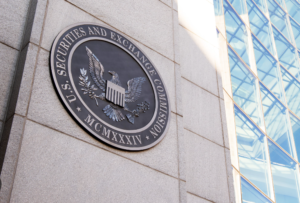$AAPL $META $BTC
#Inflation #UKEconomy #ONS #ConsumerTrends #VR #TechStocks #FoodPrices #MarketAnalysis #Crypto #InterestRates #Investing #EconomicGrowth
The UK’s Office for National Statistics (ONS) has made notable adjustments to its inflation basket, reflecting shifts in consumer spending patterns. Among the newly added items are virtual reality (VR) headsets and pulled pork, signaling a combination of rising interest in immersive technology and evolving food preferences. The inflation basket is a key component in calculating the Consumer Prices Index (CPI), used to measure price growth and guide economic policy. Changes in the basket are intended to keep pace with emerging trends and ensure inflation measurements accurately represent the reality of household expenditures. The inclusion of VR headsets suggests a growing mainstream adoption of the technology, likely influenced by advancements from major players such as Meta ($META) and Apple ($AAPL). This shift could impact stock projections for companies operating in the VR space, particularly as consumer tech demand remains sensitive to inflationary pressures and changes in discretionary income.
The addition of pulled pork hints at the changing food consumption habits of UK residents and broader transformations within the food industry. Rising demand for convenience foods and dining trends associated with barbecue-style meat have contributed to its inclusion in the basket, reflecting shifts in grocery shopping and restaurant spending. Inflationary pressures in the food sector remain a concern, as supply chain disruptions, energy costs, and global agricultural trends affect prices. Investors monitoring food-related stocks and commodities may need to consider how inflationary adjustments, coupled with evolving consumer preferences, shape profitability in the retail and hospitality sectors. Additionally, fluctuating prices of key ingredients such as pork could influence food supplier margins, impacting businesses from large supermarket chains to small-scale food vendors.
From a broader economic perspective, these basket adjustments illustrate the UK’s response to inflationary trends amid ongoing cost-of-living concerns. With inflation remaining a persistent challenge for policymakers, the ONS regularly tweaks its methodology to ensure a comprehensive reflection of real-world spending habits. The presence of tech-driven goods like VR headsets also underscores the increasing role of digital and immersive consumer experiences in global markets. As central banks, including the Bank of England, continue to assess inflationary trends to determine future interest rate decisions, the latest basket updates provide important insights into areas of spending that may face price sensitivity. Technology firms, particularly those focused on VR and digital experiences, may see shifts in demand based on broader economic conditions and the affordability of such products in inflationary environments.
Considering the evolving nature of inflation measurement, investors and market analysts will closely monitor how these adjustments influence economic forecasts and consumer behavior. The tech sector, led by major firms such as Apple and Meta, stands to benefit from rising VR adoption but will also need to navigate potential supply chain risks and pricing pressures. Meanwhile, the food industry remains vulnerable to cost fluctuations, impacting both consumer spending and business margins. Cryptocurrency markets, represented by assets such as Bitcoin ($BTC), continue to react to inflation updates, as investors track macroeconomic indicators that influence risk-asset performance. With inflation remaining a central theme in economic discussions, the shifting composition of the inflation basket serves as a reminder of the dynamic nature of consumer spending and its ripple effects across financial markets.











Comments are closed.